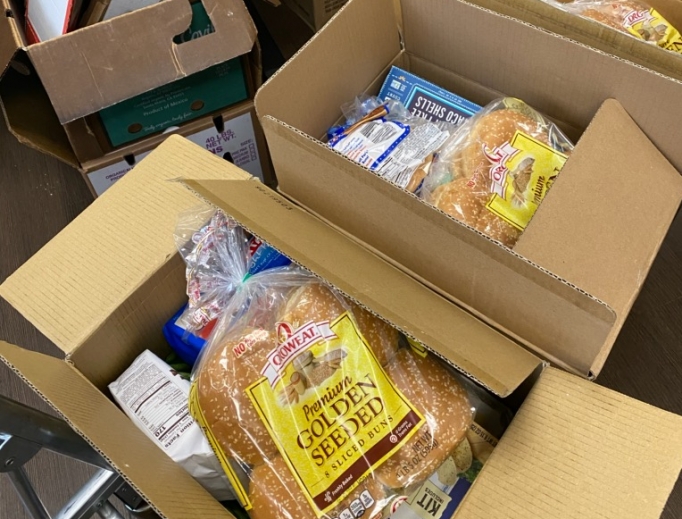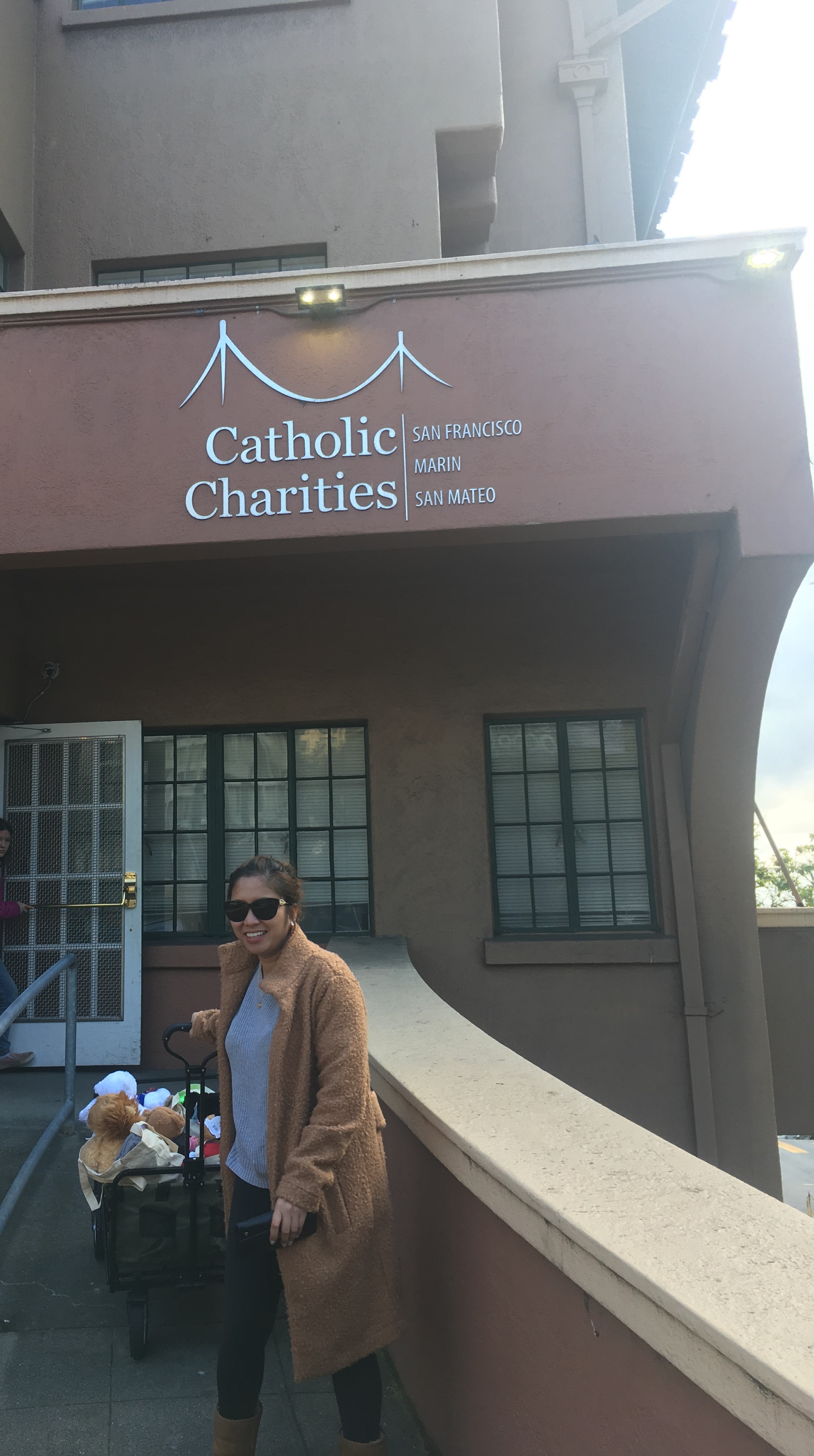Catholic Charities Continue to Serve Amid Coronavirus Threat in US
Aid continues to be extended to the most vulnerable.

NEW YORK — The “city that never sleeps” has shut down in a desperate bid to contain the rapid spread of the novel coronavirus, COVID-19. But Father David Nolan, pastor of the Church of the Blessed Sacrament, sees firsthand the challenges posed to their mission to serve people whose poverty, addictions and hunger have not taken a break.
The city’s lockdown began this Sunday, March 22.
Father Nolan said his soup-kitchen team only had one person arrive on March 15 to prepare meals for the hungry. So they put together 70 bags with sandwiches. He thought there would be less people. Maybe 50 at most.
“It was more,” he said. They had just two bags left over. “That really gives you a sense of how important this is and the need to be there doing that.”
Catholic charities and parishes that serve the poor and most vulnerable in our society are desperately trying to thread the needle between observing coronavirus lockdowns for the common good of society and fulfilling the demands of the Lord Jesus Christ to be with the poor and most vulnerable. The point was underscored by Pope Francis, who called on the Church on March 12 to remember the suffering of the poor and most vulnerable in society during the coronavirus pandemic.
“Today we ask the Lord for the grace not to fall into indifference, the grace that all the information about human suffering we have will go down into the heart and move us to do something for others,” Pope Francis said in his homily for daily Mass at Casa Santa Marta.
Over in New York, Father Nolan said it has felt “horrible” to have to cancel public Masses, but they have kept the church open for people to come in from the street for spiritual consolation.
“People are very grateful the churches are open,” he said. He had just come back from anointing somebody who is dying. He said his hands now feel raw from washing them all the time.
And while he has had some pushback, overall, he said, “People have been very supportive.”
Catholic Charities from coast to coast are one of the ways that dioceses are mobilizing efforts to care for the poor and vulnerable amid lockdowns.
With increasing restrictions in the nation’s capital, Msgr. John Enzler, CEO of Catholic Charities in Washington, D.C., told the Register that his two primary concerns were housing and food.
“My gut says it’s going to get a lot worse for a lot of our homeless people,” he said.
Catholic Charities operates 1,700 beds every night, explained Msgr. Enzler.
“The bigger concern right now are what we call the low barrier shelters,” he said, which are open to people no matter what the situation is. The city has called on low barrier shelters to remain open 24/7 until at least April 1. The extraordinary circumstances, Msgr. Enzler explained, are challenging staff members to try to maintain six-foot social distancing and preparing meals safely every day for lunch and dinner. Their main shelters have health-care services in the event someone feels unwell — but it is a daunting task in the face of a virus that spreads without showing symptoms at first.
He also said they are constantly checking in with Catholic Charities and other services around the country to make sure they are on the same page.
“We’re very much still in the stage to figure this out, but we’re making good decisions along the way,” he said.
Catholic Charities in San Francisco is operating under the most difficult circumstances: The city and five other Bay Area counties issued a shelter-in-place public-health order March 16 in order to try to slow down the exponential growth of COVID-19. The order means only Catholic Charities’ essential workers are allowed to keep working out in the community. As of March 19, the stay-at-home order extended statewide.
Jilma Meneses, CEO of Catholic Charities of San Francisco, told the Register that the Catholic ethos of their people was immediately on display in response to the crisis. Even though they gave people a choice, their essential workers elected to stay and brave the risks.
“They’re not going to abandon the poor and the most vulnerable,” she said.
“They’re going out to visit the homeless, to help them connect with shelters,” she said. They operate facilities for “very chronically ill people who are HIV-positive and have an immense amount of other chronic illnesses,” who are extremely vulnerable to dying if they catch COVID-19. They also serve aging populations that continue to rely on them for critical support.
She said the food supply has not been affected too much because they obtain most of it directly from wholesalers. But when it comes to buying retail items from Costco, they’re suffering from the same shortage problem as everyone else.


But a critical need is hospital items for their facilities.
“We don’t have enough masks. We don’t have enough hand sanitizer, like a lot of the hospitals might, and we definitely need them,” she said. “And we definitely need the [n95] masks at our residential-care facilities for the chronically ill.”
Standing Together
Each and every Catholic organization serving the poor and most vulnerable faces the prospect of running out of the financial support that keeps their staff employed in carrying out their mission.
Father Nolan said he does not want to lay off staff, who have families to support. And, thankfully, they have a little cushion from investments, but he is asking his people to donate online, or if they cannot do that, then at the very least, mail their tithes in.
Catholic Charities in D.C.’s Msgr. Enzler recommended Catholics should pick a favorite charity that does good work in the community and send them an online donation (or write a check), so they can keep the mission alive, and “make sure that services that are needed are given.”
Meneses said Catholic Charities in San Francisco has closed all but essential services and they have cut salaries and furloughed nonessential personnel. She said she was deeply moved by the self-sacrifice of her staff. She said when they told their agency’s people what they were up against, two of their employees who make the least at Catholic Charities stepped forward and said, “I’ll give up some of my salary so that somebody else doesn’t get laid off or furloughed.”
“They’re making very little compared to others in the agency, but yet they were the first to say, ‘I will sacrifice; not just for my clients, but for my co-workers,’” she said, “because we need to stand together as a family and particularly as a Catholic family.”
Peter Jesserer Smith is a Register staff writer.
- Keywords:
- coronavirus
- covid-19
- peter jesserer smith

















